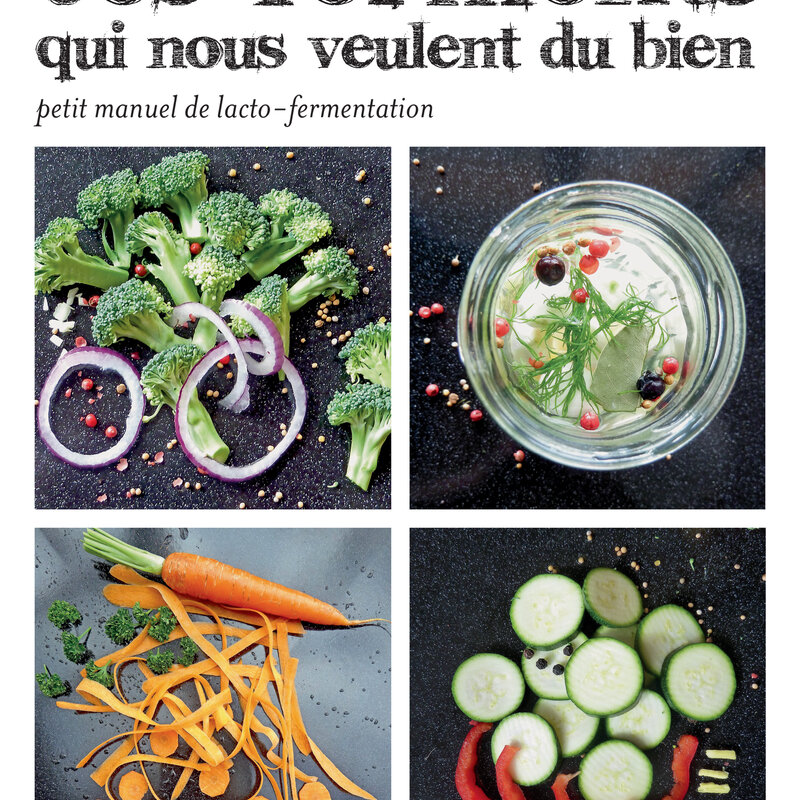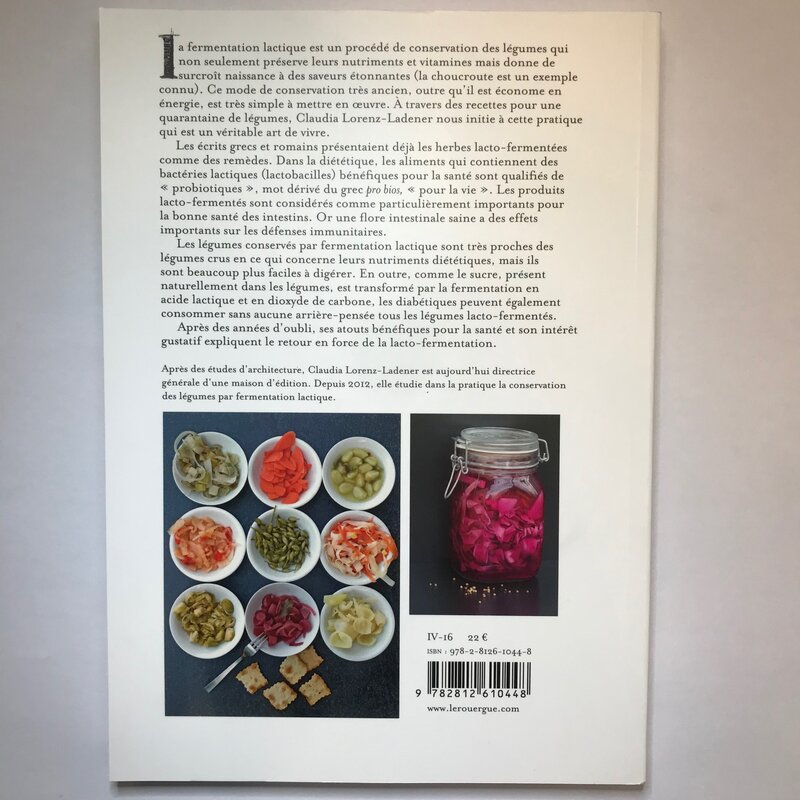The ferments that do us good
A short manual on lacto-fermentation.
Lactic fermentation is a method of preserving vegetables that not only preserves their nutrients and vitamins, but also gives rise to astonishing flavors (sauerkraut is a well-known example). This ancient method of preserving vegetables is not only energy-efficient, but also very easy to use. Claudia Lorenz-Ladener's recipes for some forty vegetables introduce us to this practice, which is a veritable art of living.
Greek and Roman writings already presented lacto-fermented herbs as remedies. In dietetics, foods containing health-promoting lactic acid bacteria (lactobacilli) are referred to as "probiotics", a word derived from the Greek pro bios, "for life". Lacto-fermented products are considered particularly important for good intestinal health. A healthy intestinal flora has important effects on the immune system.
Vegetables preserved by lactic fermentation are very similar to raw vegetables in terms of their dietary nutrients, but they are much easier to digest. What's more, since the sugar naturally present in vegetables is converted by fermentation into lactic acid and carbon dioxide, diabetics can also consume all lacto-fermented vegetables without a second thought.
After years of oblivion, the health benefits and taste appeal of lacto-fermentation explain its resurgence.
Claudia Lorenz-Ladener - Éditions Le Rouergue - 128 pages










